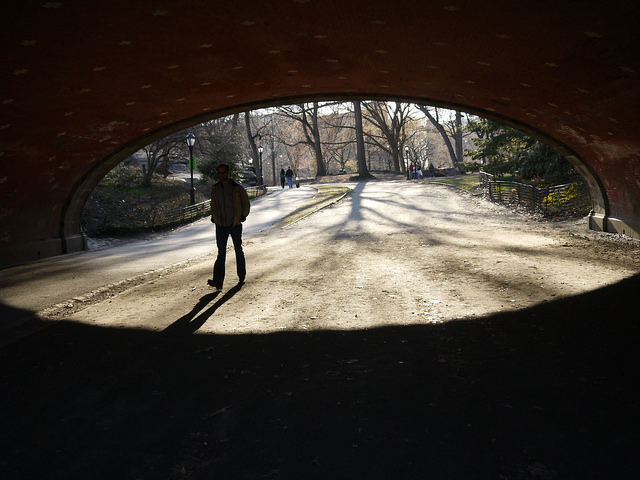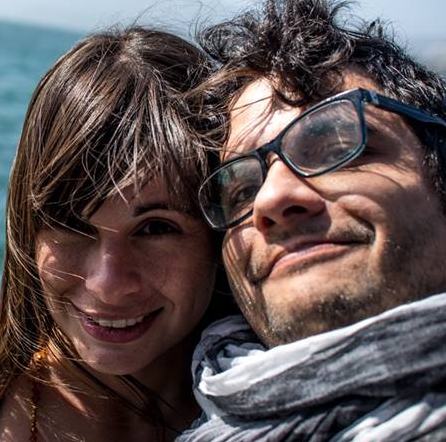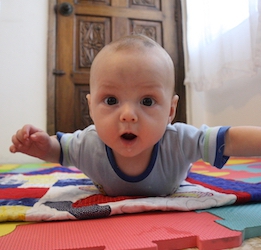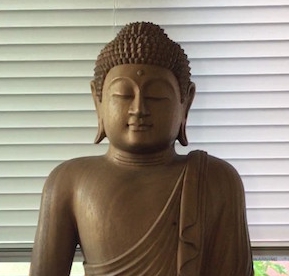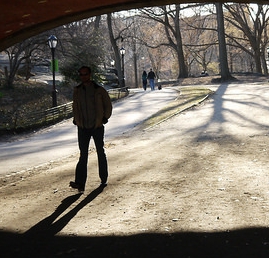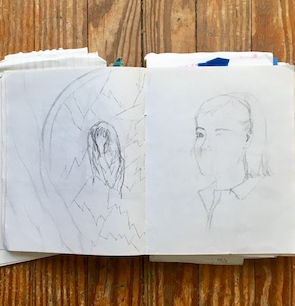I liked her right away. She was qualified of course, and smart, with her beautiful portfolio filled with campaigns she’d successfully managed, her resume peppered with famous brands and successes annotated with percentage metrics. But it was her confidence that drew me to her, the way she laughed deeply from her belly, neck back, revealing the gap between her front teeth. When she moved her arm a tiny tattoo peeked out from under her shirt sleeve and then disappeared again. She was interesting, and I wanted more of her, to hear her opinions, to wade into her mind and sift my fingers through her neurons, absorbing her.
“Hire her immediately,” I said, and we all agreed that she should have an offer waiting for her by the time she stepped out of the elevator and onto the street.
On her first day I cleared out the cubicle next to mine and we sat side by side, our desks separated by a dingy gray partition. On either side of us sat another woman, making an isolated cube of four cut off from the rest of the office.
“It’s a girls’ corner again,” they said, because it had been once, long before I had worked there, and now it was again. “We should go for lunch.”
She had a meeting out of the office so she agreed to meet us there, and when we showed up she was sitting alone at a table, waiting.
“Is there a creepy guy standing outside?” she asked, even before I could sit down.
I looked past her shoulder onto the street and saw a man with a purple beret pacing outside the window. His eyes were large and round, and he stared back at me without blinking.
“Yes,” I said. “There is.”
“He came in here and gave me that.” She nodded towards a yellow flower on the windowsill.
“Told me I was beautiful and asked if he could take me out.”
“What did you say?”
“That I was married.”
She wiggled her bare fingers then folded her arms again. “He doesn’t need to know.”
“Why is he still there?”
“I don’t know. I told him I wasn’t interested.”
We reassured her, telling her that he would leave soon enough, so we changed the subject and ordered our food. But when the waitress came back out, I saw her face change. The man had come inside and taken a table behind us, right in her line of sight.
“He came inside,” she said, whispering, our heads bent together around the round table.
“Maybe he was coming here anyway,” I said, but I knew that he wasn’t, and I hated him for casting a shadow on us and making her uncomfortable. I felt protective of her, as if my hiring her had put her in this situation, and I wanted to call the waitress and tell her to kick him out.
But he hadn’t done anything, really, except ask her out and stare at us, so we pushed our chairs together so she couldn’t see him and continued our lunch.
“I smiled at him when he came over,” she said.
“You were just being friendly.”
“I shouldn’t have done that, but I was afraid I would make him mad. I learned that from last time.”
I had been thinking it before she said it, about the time I had been walking into the subway and a man had run up to me, clutching my bicep, asking me to stop, wanting to talk to me. “Excuse me,” he kept saying, “please,” and I had recoiled so suddenly that the guy working in the booth had gotten out and stepped towards us, his hands out, as if he were approaching a bomb. And the time a man had introduced himself, sticking his right arm out for a handshake that I had stupidly taken, his left hand clamping down over mine like an oyster and my fingers the pearls, unable to break free, backing away towards the stairs. And the time that man had followed me and my friends and he’d kicked me, and the only way we could get away was when some other guys held him back, telling us he was drunk, and telling him it wasn’t worth it. And all the times I had smiled when I had wanted to run, laughing so I wouldn’t make it worse.
We paid the check and put our coats on, stepping out on the street together, and then we saw he was doing the same thing, timing his departure for when we would be leaving, standing a few feet away from us on the sidewalk.
“Let’s go,” I said, and we put her between us, linking arms, looking over our shoulders as we walked down the street towards the subway.
“It’s OK, he’s going the other way.”
And I watched his purple beret turn down the street away from it, and we sighed in relief, because it had felt close, too close.
“Now that I think about it,” she said, “he was on the subway with me too.”
“That’s creepy.”
I was happy it was over, happy that we could turn it into just a story that happened when we went out for a girl’s lunch, something to bond us together.
“He’s gone,” I said, “don’t worry.”
But just as I said this we stepped out onto Broadway and he was there again, lockstep behind us, his purple beret in the corner of my eye.
“He walked around the block.”
And I felt my heart constrict and my veins pulse, and I wasn’t sure if she could tell because she looked so calm, her lips closed so casually she was almost smiling, her neck straight and so close to me I could see the beginnings of another tattoo right at her collarbone, a curvy script spelling out something incomplete.
There was nothing between him and us, just a few feet of distance he could easily span with one arm length, and standing there on a busy sidewalk in the middle of the day, I felt scared and vulnerable.
“Let’s take that taxi,” I said, and I shot my hand up and we climbed in, watching him standing on the sidewalk, following us with his eyes.
“I’m sorry,” she said, and we tried to explain that we were happy to do it, because we didn’t want him following her and knowing where she worked. I imagined his purple beret standing outside the building, waiting all day for her to take a lunch break, and I was relieved it wasn’t me he wanted. I was ashamed for thinking it, because it had all been my fault, because I had chosen the restaurant, I had hired her, I had made our cubicles the girls’ corner, and now the only thing I wanted was not to be her, to be someone else, someone safe.
When we stopped I paid the cab driver in cash but he gave it back, wagging his finger.
“She already swiped,” he said, pointing to the back seat where she was sitting with the others.
We pushed money on her, insisting, but she wouldn’t accept it. She was quiet and withdrawn, and I thought about the lovely gap between her teeth and how this man had forced her to hide it away. We went back to our desks and didn’t talk about it again.
That night I told my husband what happened.
“Have you ever felt afraid walking down the street?” I said.
“Like at night? When something’s going on?”
“No, not like that,” I said. “Like when nothing’s going on. Like on a normal day, on a normal street.”
He paused to think about it.
“No, I guess I haven’t.”
“I know,” I said, because even before he had said it, I already knew.
And I realized it didn’t matter that it had been her and not me, because it was the same thing, and her story was now my story too, just like all the others.
Sara Alaica’s writing has been featured in Cleaver, Spry, Switchback, and Paper Darts, among others, and she was a writer in residence at Taleamor Park. She lives with her husband and pet turtle in New York City, where she is a member of the Women’s National Book Association and leads the local chapter of Women Who Submit, a national organization empowering women writers.
